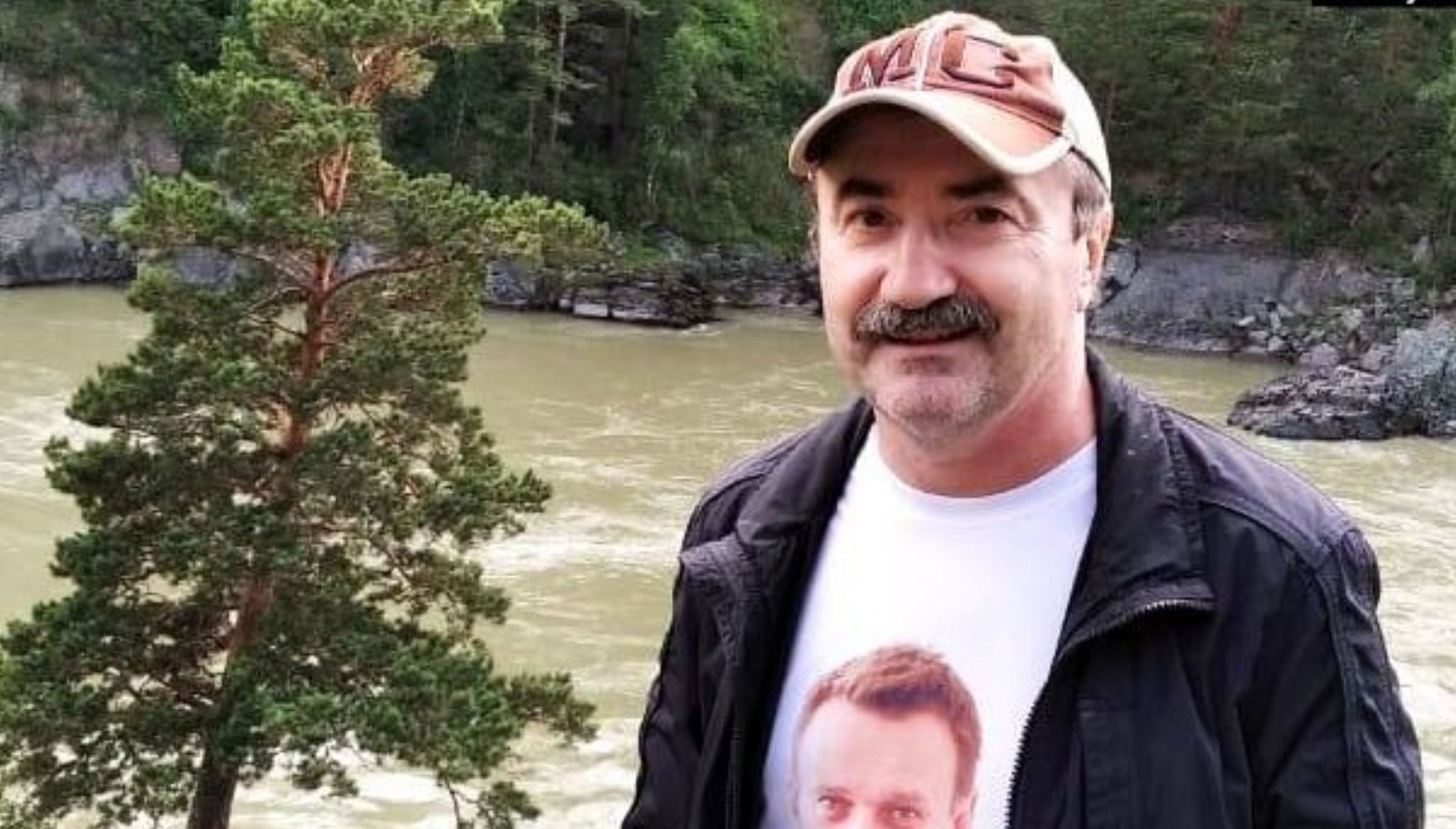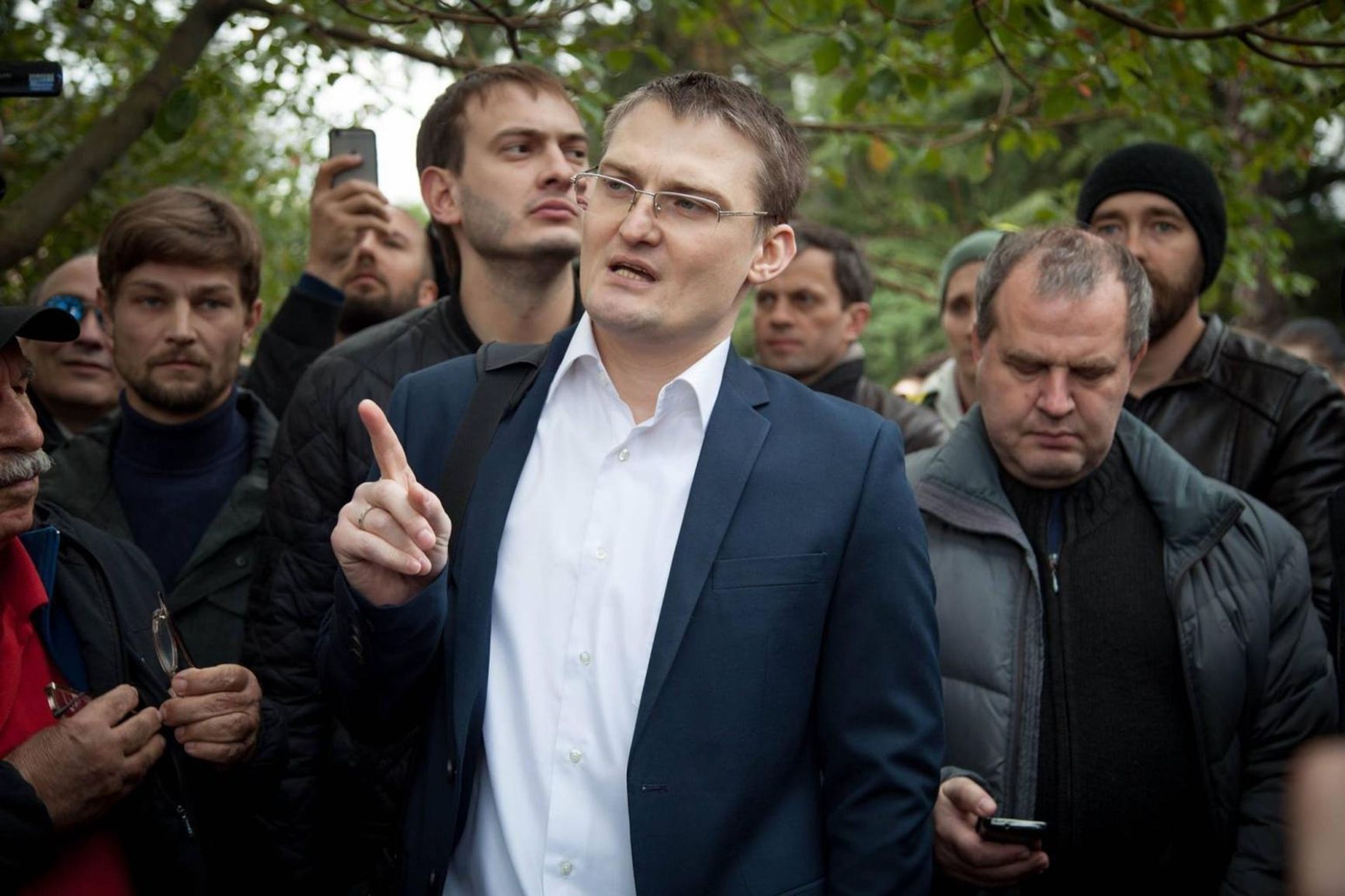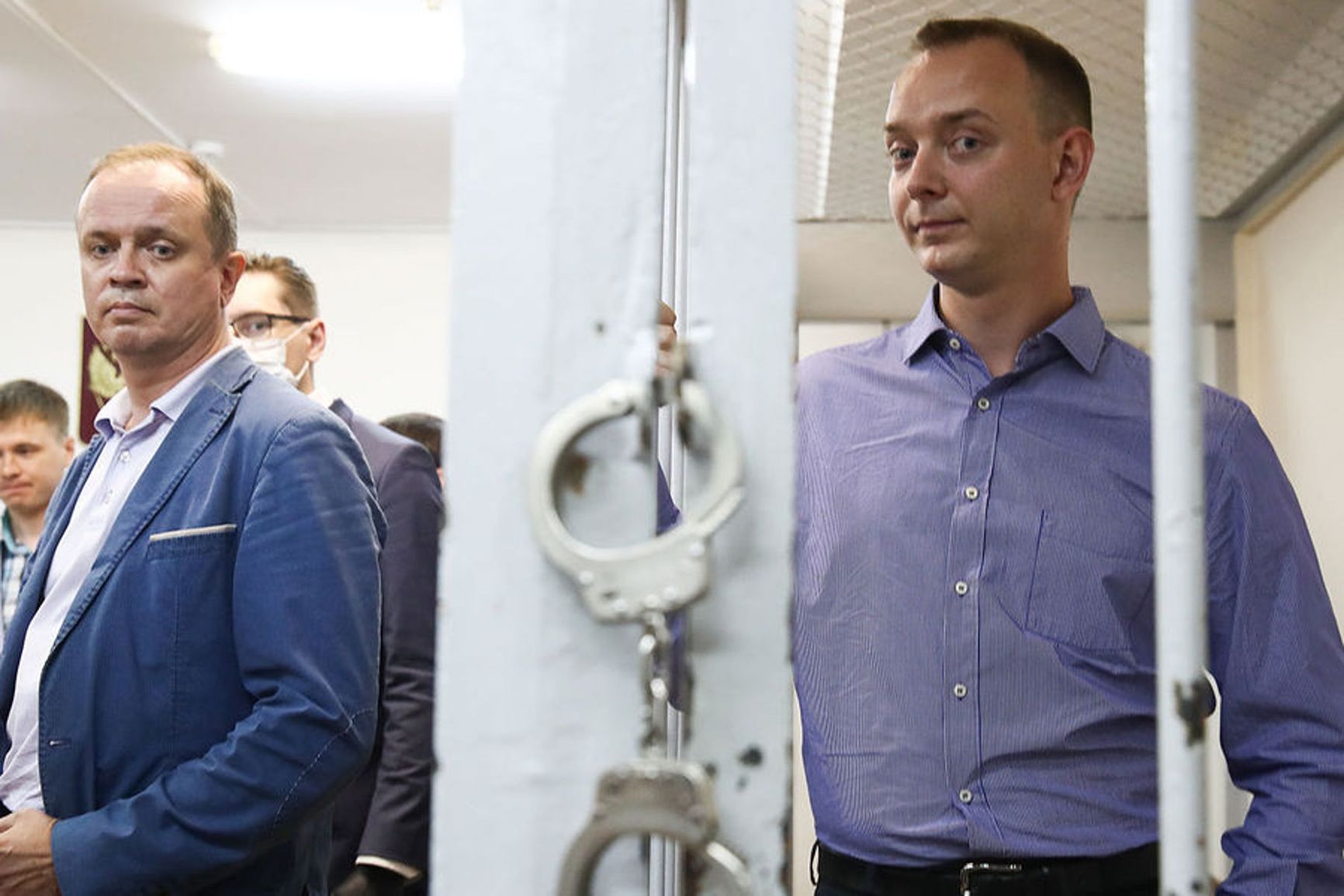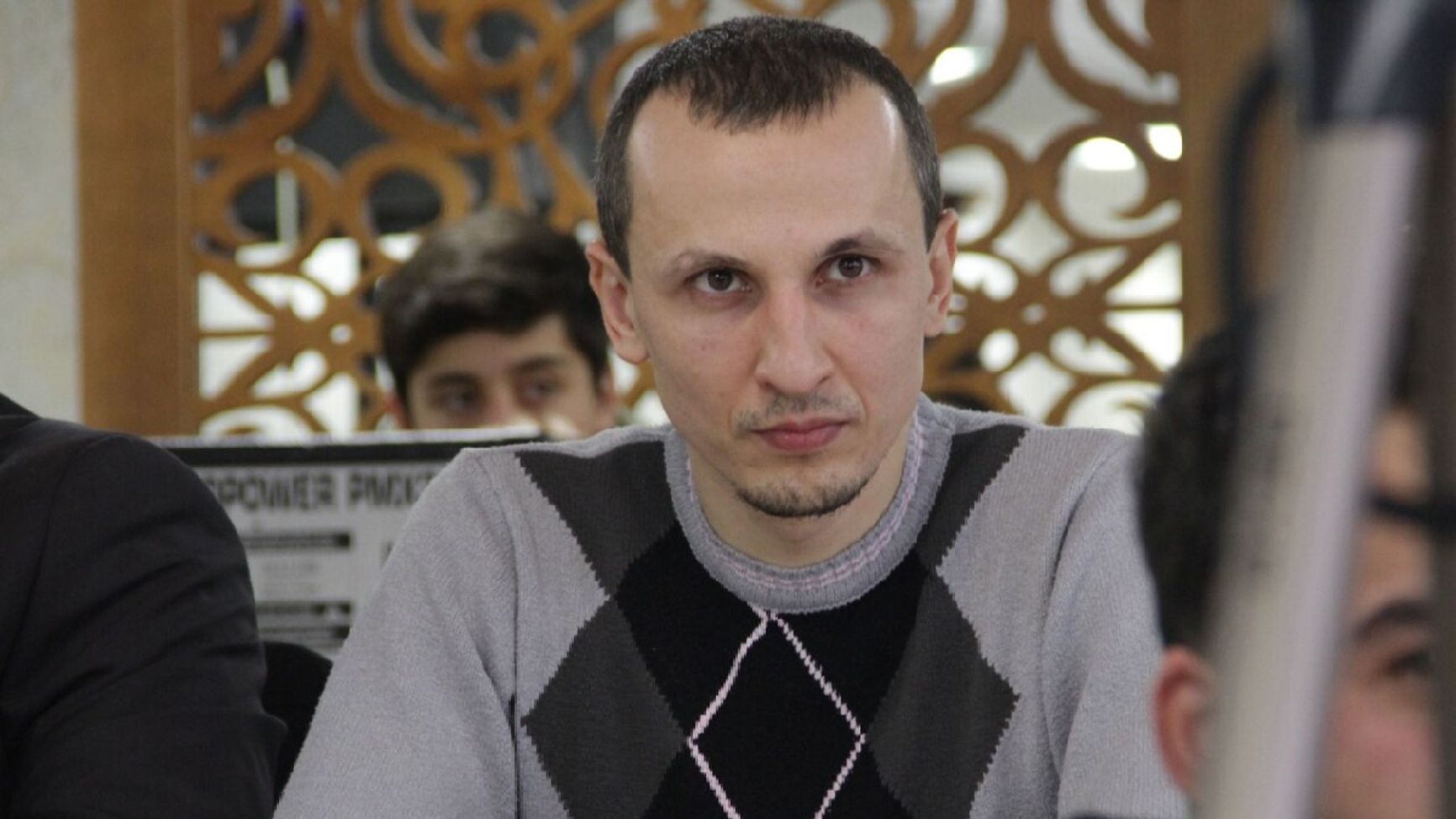

While intensifying repressions against people who disagree with the war and the actions of the Putin dictatorship, the government did not omit to deprive them of their right to defense. Legal assistance in Russia increasingly resembles palliative care: successful defense of those accused of political crimes has become impossible. The government punishes lawyers by identifying them with the defendants and has in fact declared war on independent attorneys – just as it had previously “defeated” independent media, education, and civic initiatives.
Content
Friend of my enemy and enemy of my enemy
Lawyers under investigation
Professional ban
Friend of my enemy and enemy of my enemy
The Putin regime never liked independent legal professionals. But it maintained the appearance of fair trials in the courtroom, recognizing that lawyers were not partners-in-crime but people whose job was to protect the accused. Now all such conventions have been discarded. In political cases, siloviki and the courts consider lawyers to be accomplices - and treat them accordingly.
In 2022, OVD-Info lawyer Mikhail Biryukov defended Memorial, politician Ilya Yashin (sentenced to 8.5 years in prison for a video stream in which he spoke out about the killing of civilians in Bucha), politician and publicist Leonid Gozman, activist Mikhail Lobanov, the defendants in the Vesna case, lawyer Dmitry Talantov, and deputy Alexei Gorinov. Biryukov is a very gifted and experienced lawyer, but he had no chance of winning any of those cases. The outcome was politically predetermined. Nor did lawyers have any chance to win any of the other landmark cases, such as those of Sasha Skochilenko, Andrei Pivovarov, Vladimir Kara-Murza, Ivan Safronov, Dmitry Ivanov, Artem Kamardin, Ketevan Kharaidze, Pavel Krisievich. It is also impossible to obtain acquittal of the defendants in numerous “censorship” cases (for phrases like “no to war”). The investigators in advance consider guilty all those who have taken a stance that differs from the official one.
The investigators in advance consider guilty all those who express a position that differs from the official one
The case of deputy Gorinov, who got a 7-year sentence for criticizing the war (in fact, for the phrase “children are dying in Ukraine”) after a five-day investigation, became a symbol of legal norms being flouted. The gravity of the charge was amplified by the alleged “use of official position” - the fact that Gorinov called for a halt to the war at a municipal council meeting.

Leonid Gozman and lawyer Mikhail Biryukov
In 2022, the authorities decided that those who help their political opponents are their enemies, Mikhail Biryukov said in a recent interview on the violation of lawyers' rights. And since Putin's government identifies itself with Russia, its enemies are “enemies of Russia.” Lawyers Biryukov and Vadim Prokhorov “have taken an anti-Soviet... anti-Russian stance,” said a 35-year-old prosecutor, who was still a child when the USSR collapsed, at the Yashin trial.
Putin's system has transformed the courts into a tool of the executive branch, a “judicial department” that metes out punishment to those whom the government has appointed as criminals. Independent lawyers defending “political criminals” do not fit into this system at all, especially after Russia's withdrawal from the Council of Europe and from the jurisdiction of the ECtHR. Now there is no need to even pretend to comply with legal norms. Lawyers drag out court hearings, ask inconvenient questions, and inform the public about judicial mishaps and “slipups” that riddle political trials.
After Russia's withdrawal from the Council of Europe, there is no need to even pretend to comply with legal norms
But there are also “model” lawyers. Igor Vagin and Dmitry Yershov came to the Investigative Committee themselves and went to the “DNR” to participate in the trial against foreign prisoners of war sentenced to death. It's hard to call it a defense. The lawyers were needed by the “Investigative and Judicial Department” to prevent the “enemies of Russia” from saying that the POWs were deprived of legal assistance. However, the defense was extremely formal: Vagin and Yershov showed solidarity with the prosecution in every possible way.

Foreign prisoners of war sentenced to death in the “DNR”
The work of Vagin and Yershov, as well as that of other “attorneys-at-law,” is not paid for by their clients, but rather by the government. Such attorneys often stay in background, never using all available means and methods of defense. In fact, many of them don’t work in the interests of their clients, but rather in the interests of the government, and have close ties with law enforcement officials. Their willingness to act in the interests of the investigation helps them get more cases in which they don’t advise defendants on how to testify, don’t dissuade them from pleading guilty, and don’t look for procedural errors made by investigators; they are there for appearances only. Thus, court proceedings can move along at a faster pace and the attorneys themselves tend to be “malleable”, which is convenient for the investigation.
Vagin and Yershov showed contempt, mocked and criticized their clients at every turn. In a scenario ideal for Putin's state, lawyers for Navalny, Yashin, Kara-Murza and other “political criminals” prosecuted by the government as violators of the Criminal Code would have behaved in exactly the same way.
Putin's ideal of an attorney is similar to the attorneys of the Stalin era: they understood the “political component of the cases”, did not try to stop the courts from “dealing massive blows to class enemies,” and assisted both the prosecution and the court. Back then, the state and the party put lawyers under their control, made them loyal, and stripped them of their procedural rights (they were not allowed to communicate with defendants in confidence or participate in pre-trial procedures).
Stalin and the party put lawyers under their control, made them loyal, deprived them of their procedural rights
Already during the first political show trial of the right-wing Social Revolutionaries in 1922, the defense attorneys left the trial with the words “Woe to that country, woe to the nation that disrespects the law and laughs at the people who defend it,” and were soon repressed. Under Stalin, attorneys were unable to defend not only their clients but also themselves. About 400 attorneys were repressed, many of them not for their work as attorneys but along with other citizens of the USSR on trumped-up charges.
Lawyers under investigation
In 2022, Russia also launched repressions against lawyers. The prosecution of Dmitry Talantov, president of the Udmurtia Chamber of Attorneys, was a landmark case. He was charged with spreading false information about the actions of the Russian military in Ukraine and “extremism” - “inciting hatred and enmity” using his official position.
Talantov published reports on the mass murder of civilians in Ukraine by the Russian military and formed a “negative, contemptuous attitude towards President Putin and his policies.” Talantov has been in custody for six months. His arrest could have been “revenge” for defending journalist Ivan Safronov on charges of treason. The UN Human Rights Committee, the International Bar Association, and Amnesty International have called for Talantov's release.

Lawyer Dmitry Talantov
Other anti-war lawyers are also unacceptable to the authorities. Kaliningrad lawyer Maria Bontsler was twice fined for “publicly discrediting the army” in court speeches while defending anti-war protesters. The regional chamber of attorneys supported Bontsler; it turned out she was denounced by the judges who did not like Bontsler's phrases such as “Russia attacked Ukraine.” Laws that prohibit talking openly about the war force attorneys to denounce their clients, says attorney Ekaterina Selizarova, who defended Bontsler. This would not be objectionable to government-appointed lawyers, but independent defense attorneys cannot work like this. In general, the community of legal professionals is split: some are against the war, others do not support the war but are afraid to speak out, still others denounce their colleagues and do as the authorities say.
The community of legal professionals is split: some are against the war, others do not support the war but are afraid to speak out, still others denounce their colleagues
Ufa lawyer Sergey Makarenko was fined for his badge “No to War” and the phrase “Glory to Ukraine”. Krasnoyarsk lawyer Nikolay Munsky was prosecuted for supporting Alexey Navalny. Krasnodar lawyer Alexei Avanesyan was accused of violating his non-disclosure pledge - even though he gave it after the publication of the texts allegedly released “in violation of the pledge”. Avanesyan's client had been accused of “rehabilitating Nazism” (he walked up to a monument to those killed in local wars and pretended to make a wrestling move).

Lawyer Sergei Makarenko
The Ministry of Justice demanded that the Krasnodar Chamber of Attorneys disbar Mikhail Benyash for “disrespect” and for making negative statements about the Chamber of Attorneys, the court, and the executive branch, especially for comparing Putin to Hitler and providing information “aimed at destabilizing the social and political situation” (all of it was found in Benyash's posts in his Telegram channel). Before that, he had been named a foreign agent, accused of obstructing justice and “attacking police officers.” Benyash was defended by several attorneys who were struck by the blatant disregard for legal principles in the case. Because of the “foreign agent” status, the lawyer has been suspended from legal practice.

Lawyer Mikhail Benyash
In 2022 attorneys often faced ridiculous accusations, violence, and violations of their rights. 76-year-old lawyer Prometey Yefimov was accused of disobeying police demands; the police alleged he had “insulted human dignity” by the way he looked. Lawyer Georgy Krasnov was detained on the day of the anti-mobilization rally in Yekaterinburg, although he was standing at a distance from the protesters; he came to the rally to provide legal assistance to detained journalists should they need it.
On the days of mass rallies due to the declaration of the “Fortress” plan, some lawyers joined the protests with the purpose of being detained: that was the only way for them to get inside a police van, or in fact inside a police department. Lawyers have been fighting with the police and the Federal Penitentiary Service for years; those agencies, based on internal instructions, deny them entry to police departments and penal colonies with phones.
Some lawyers went to the protests with the purpose of being detained: it was the only way for them to get inside a police van
Lawyers have also interfered in the mobilization. The Military Commissar of Moscow threatened to prosecute lawyers for “aiding and abetting in evasion of military service”. The military commander called on the Moscow Attorneys’ Chamber to explain to lawyers the inadmissibility of such assistance. The Attorneys’ Chamber answered the Military Commissar that advice on mobilization issues is absolutely legal. The government is much less interested in adhering to legal norms during the mobilization than in recruiting as many soldiers as possible. That is why the authorities try to intimidate lawyers, considering them accomplices of criminals. Violence against lawyers has become more frequent. One such case resulted in the dismissal of a police officer. Another lawyer was beaten up at a military registration and enlistment office in Moscow.
Professional ban
Siloviki cracked down hard on the lawyers in the case of Ivan Safronov. They were not allowed to participate in the interrogations, and when the defense attorneys refused to sign a non-disclosure pledge, the Ministry of Justice demanded that the corresponding attorneys’ chambers initiate disciplinary proceedings against them. The investigators then completely classified Safronov's case. A case was opened against Ivan Pavlov for telling journalists about the circumstances of Safronov's case, after which he was forced to leave Russia. Pavlov had headed Team 29 and defended Navalny, Safronov, Karina Tsurkan, and others accused of state treason and disclosure of state secrets. By suspending Pavlov from legal practice, the FSB prevented him from working on such cases.

Lawyer Ivan Pavlov and Ivan Safronov
After Pavlov, the Safronov case was handled by Dmitry Talantov, whom the FSB also slapped with a personal case. The authorities have been clearly pointing out there is a category of defendants who must not be defended.
It is not only Pavlov whom the authorities have been trying to throw out of the profession. If a lawyer is disbarred, he can be forbidden to represent his clients in court, even in civil cases. Initially, this norm was supposed to protect clients from unscrupulous lawyers. But now the government can apply it to political opponents, such as Mikhail Benyash.
If a lawyer is disbarred, he can be forbidden to represent his clients in court, even in civil cases
The authorities systematically persecuted the Crimean lawyers Lilya Gemedji, Rustem Kyamilev and Nazim Sheikhmambetov, who defended clients in political cases. The authorities usually accuse Crimean Tatars, whom they suspect of disloyalty, of participating in the Hizb-ut-Tahrir organization. Gemedji, Kyamilev and Sheikhmambetov defended the accused together with the human rights organization Crimean Solidarity, publicly condemning the lawlessness of such cases. Two years ago, the founder of Crimean Solidarity Server Mustafayev was himself sentenced to 14 years in a strict regime penal colony - allegedly for participation in the activities of Hizb-ut-Tahrir.

Founder of Crimean Solidarity Server Mustafayev
The human rights activists were denied the status of an attorney in Crimea. Having received that status in Chechnya, they had been working in Crimea, but the security service threatened to disbar them, accusing the attorneys of organizing extremist actions against the Russian authorities. The Chechen Attorneys’ Chamber launched the process of disbarment while the Crimean Chamber of Attorneys refused to admit them due to their allegedly flawed status. In 2022, the Chechen Attorneys’ Chamber disbarred the three attorneys. After being disbarred, the lawyers were accused of “discrediting” the Russian army and organizing mass rallies. Other Crimean attorneys, who defended the detained lawyers, were also charged with similar offences.
The disbarment of Gemedji, Kyamilev and Sheikhmambetov was an extremely murky affair, but the hand of the FSB could be easily felt in it: way ahead of the attorneys’ chambers the siloviki knew about the upcoming disbarment. Disbarred attorneys are not allowed to work in courts. The “my enemy's friend is my enemy” principle was fully implemented in the Crimean case on multiple occasions. Its further promulgation would make it impossible for attorneys to work on political cases.
The “my enemy's friend is my enemy” principle was fully implemented in the Crimean case
Putin's regime is at the point where it’s almost ready to automatically recognize its opponents as criminals. And it is ready to free its supporters from punishment for any crime. And not only if they atone for their crimes with blood by enlisting in the ranks of the Wagner PMC. In December, a shocking bill was passed by the legislature which provides exemption from responsibility for crimes committed in the occupied territories if they were committed “in defense of the interests of the Russian Federation.” This is very close to the approach that was taken by the proletarian dictatorship: any sneeze against the Soviet government was a crime, any action in its defense a boon.”
Boris Grozovsky, economic observer, author of the EventsAndTexts Telegram channel